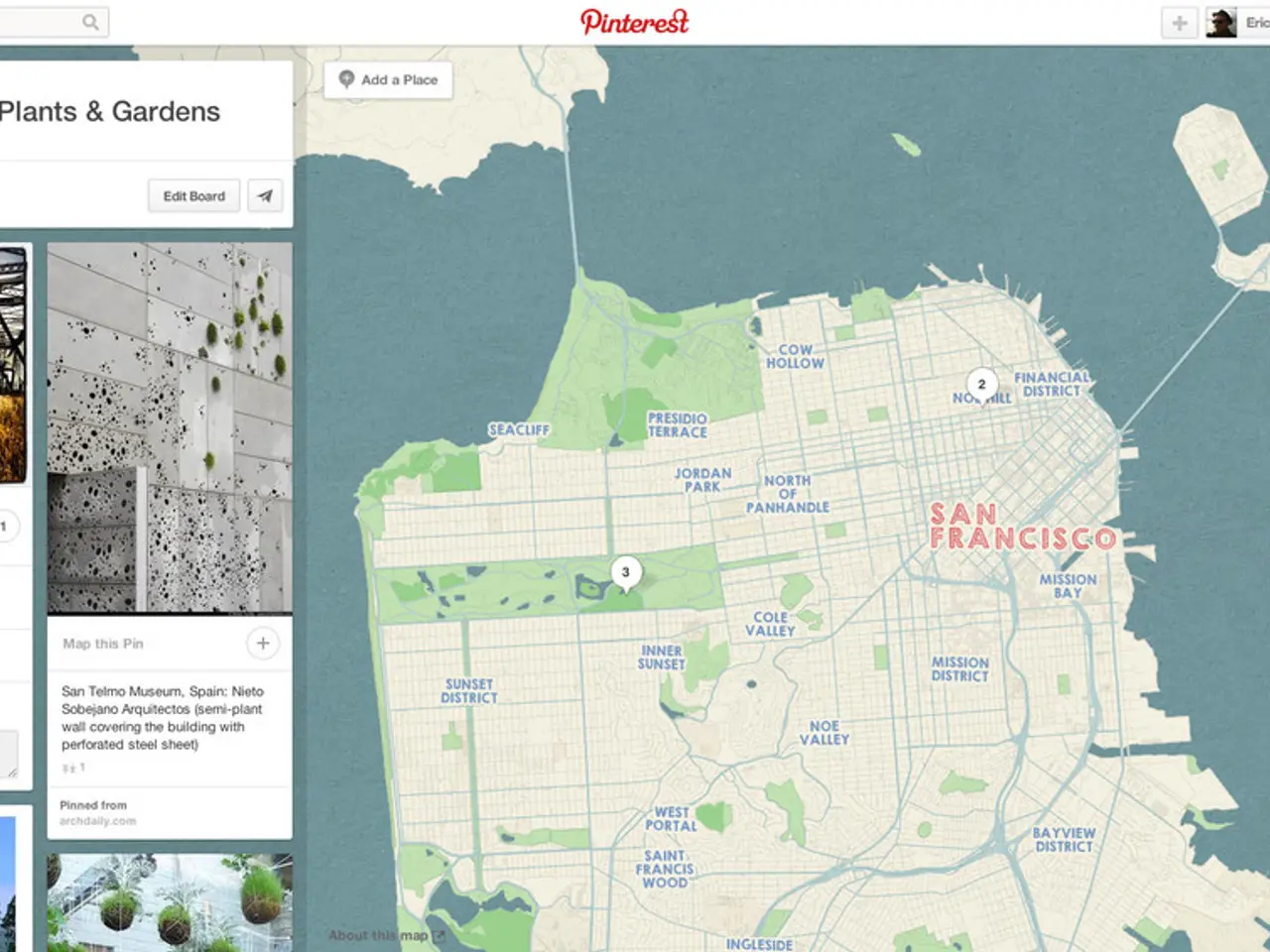Charting a Profession: Crafting the Globe as a Vocation
In the ever-evolving world of technology, the field of cartography is experiencing a significant shift, transforming from traditional map-making to a digital, data-driven, and storytelling-focused discipline. This article offers an insightful guide on the educational path, required skills, and career progression for aspiring cartographers.
**Educational Path to Become a Professional Cartographer**
**In India**
The journey to becoming a professional cartographer begins with completing higher secondary education (10+2) with a focus on subjects such as Physics, Chemistry, Mathematics, or Geography. A minimum aggregate of 60% is often recommended for admission to degree programs. Pursuing a bachelor’s degree in Cartography, Geography, Geospatial Science, Geoinformatics, Environmental Science, Surveying and Mapping, or a closely related field follows. While a master’s degree is not always mandatory, it can enhance career prospects, especially for research or leadership roles.
**Internationally**
A bachelor’s degree in Geography, Cartography, Geospatial Science, Environmental Science, Surveying, or Urban Planning (with a focus on GIS) is typically required. Master’s degrees in Cartography, GIS, Remote Sensing, or Spatial Data Science are more common and can lead to specialized or managerial roles. Professional certifications in GIS, remote sensing, or surveying are also valued globally.
**Required Skills for a Professional Cartographer**
A professional cartographer requires a combination of technical, analytical, design, mathematical, fieldwork, communication, and project management skills. Proficiency in Geographic Information Systems (GIS), remote sensing, computer-aided design (CAD), and data visualization software is essential. Analytical skills are crucial for collecting, analysing, and interpreting spatial data from surveys, aerial photographs, and satellite imagery. Design skills are necessary for creating clear and accurate maps, while mathematical and statistical skills are essential for accurate data manipulation and modeling. Fieldwork skills are important for conducting surveys and verifying ground data when necessary. Communication skills are vital for reporting findings, collaborating with teams, and presenting maps to diverse audiences. Project management skills, especially for senior roles, involve leadership, planning, decision-making, and problem-solving.
**Career Progression**
Career progression in cartography includes entry-level roles such as Junior Cartographer or GIS Technician, mid-level roles like Cartographer or GIS Analyst, and senior-level roles such as Senior Cartographer, GIS Manager, Project Lead, or roles in research and academia.
**Additional Notes**
In both India and internationally, the cartography profession is increasingly technology-driven, with a growing emphasis on digital mapping, 3D modeling, and real-time spatial data analysis. Lifelong learning and adaptability to new tools and technologies are key to sustaining a successful career in this field. Cartography is a blend of science and art, requiring a mix of technical and creative skills such as spatial thinking, GIS proficiency, design sense, data interpretation, coding skills, and strong communication skills.
If you have a passion for geography, design, and technology, a career as a cartographer could be your perfect route - literally and figuratively. With opportunities in government, private sector, academia, non-profit organisations, and big tech companies, the future of cartography is bright and promising.
- To pursue a career in cartography, it's beneficial to focus on education in relevant fields such as Cartography, Geography, Geospatial Science, or Environmental Science during higher secondary education.
- In addition to a bachelor's degree, obtaining a master's degree, especially in Cartography, GIS, or Spatial Data Science, can enhance career prospects in research or leadership roles.
- For success in this field, a cartographer needs a range of skills, including technical abilities in GIS, remote sensing, CAD, and data visualization software, combined with analytical, design, mathematical, fieldwork, communication, and project management skills.
- As career progresses, opportunities extend from entry-level roles like Junior Cartographer or GIS Technician to mid-level roles such as Cartographer or GIS Analyst, and eventually to senior-level roles like Senior Cartographer, GIS Manager, Project Lead, or roles in research and academia.
- With a growing focus on digital mapping, 3D modeling, and real-time spatial data analysis, lifelong learning and adaptability to new technologies are crucial for a successful career in cartography.




